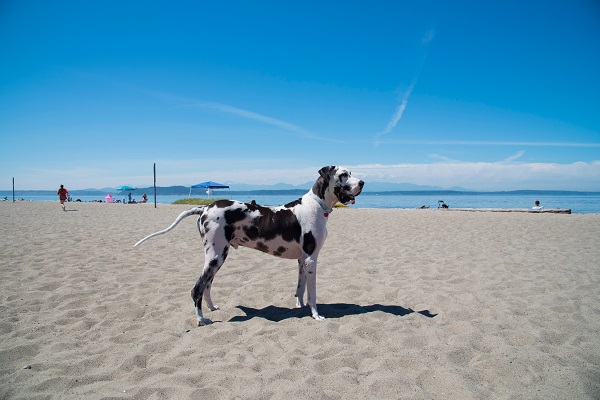Adopting a pup can be a wonderful time, especially as their adorableness melts even the coldest of hearts. However, some may get so wrapped up in the cuteness that they aren’t considerate enough of the suitability. It is essential to get the right bedding, schedule vaccinations, organize their diet, and others.
However, unless you have done your research, some hidden considerations may not be as obvious. When a dog is a puppy, they need some particular care and love.
The age of separation between a mother and pup is significant to the dog’s welfare. If done too early, it can impact the puppy’s later behavior and can contribute to abandonment by careless owners. You must adopt a puppy from a well-known organization; otherwise, there may be trouble in the future.
What’s the Best Age to Bring Your New Puppy Home?
The suggested age at which you should adopt a puppy is closely related to the puppy’s socialization. This stage starts around three weeks after the neonatal period is over.
Although it will continue throughout the dog’s entire life, it is the most vital to their development between this time and three months of age. This phase is known as the ‘sensitive period’ when they are most impressionable.
They learn canine body language, how to play, discover their environment, recognize friends and start to become aggressive, among other behaviors. The basic timeline for pups goes like this:
- Birth
- 0 to 3 weeks: neonatal period
- 3 to 8 weeks: sensitive period
- Up to 12 weeks: socialization period
- 3 to 6 months: ranking period
This is why the minimum age to adopt a puppy is after eight weeks of age. After this time, they have already started to socialize with their mother and friends but can still adapt to and recognize new individuals, sounds, and environments.
While leaving them with their mother for this time, it is also important to start socializing with people. It means interaction, physical manipulation, and giving affection. Without it, it can be challenging for a puppy to adapt to human guardians.
Behavioral problems in puppies associated with adoption age
Adopting a pup too early can cause various behavioral problems. They do not always manifest themselves, but it is much more likely to happen. They usually occur when an early separation happens.
It is important to note that early or late separation is not the only issue related to behavioral problems. Quality of care, genetics, and learning are also factors.
Here are the most common behavioral problems which may develop:
- Early adoption: adopting a puppy younger than two months is not advised. As well as seriously hampering the socialization process, it interrupts the breastfeeding and weaning stages, which are necessary for their physical health. Adopted too early, a dog might not know how to recognize other dogs, animals, and humans. Not knowing how to interact with others can lead to fear which fosters stress. Another consideration is that they will not know bite inhibition of play limits. This can lead to a dog causing harm, even when they believe themselves only playing.
- Late adoption: on the contrary, adopting a pup after three months of age can cause its own problems. After this time, the dog may have become so used to its earlier environment that it may struggle to adapt to a new one. It can lead to poor interaction with others and cause fear and stress. However, there are many reasons a dog might need to migrate or adapt to a new environment, and there are methods to help them through the process.
If we observe behavioral problems in a puppy, we should take them to a professional as soon as possible. A veterinarian can rule out an underlying pathology as the cause. Moreover, canine ethologists and dog trainers will help find practical ways to help lessen these negative behaviors.
Education and care for puppies
To ensure a good adaptation of a puppy to its new home, we must make the proper considerations. These start before the puppy arrives, and it is essential to consider both the emotional, practical and economic effect this will have on your home life. You will need to buy essentials, including:
- Water bowl or drinking fountain
- Bedding
- Food bowl and food
- Toys
- Vaccination schedule
- Collar and tags
- Deworming schedule
Don’t forget that a puppy has specific dietary needs. It means you will need to buy special food that will bolster their nutrition as they develop and grow into adolescence. As responsible owners, we also need to inform ourselves about the proper education of puppies.
This involves using positive reinforcement, basic knowledge commands, and respecting canine body language. If we are not familiarized properly, this can also lead to behavioral issues later in life.

 DogExpress
DogExpress




















 in Chandigarh, India.
in Chandigarh, India. 
